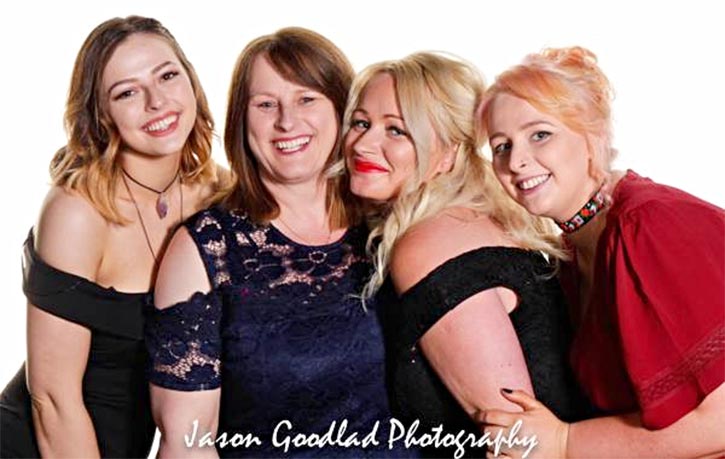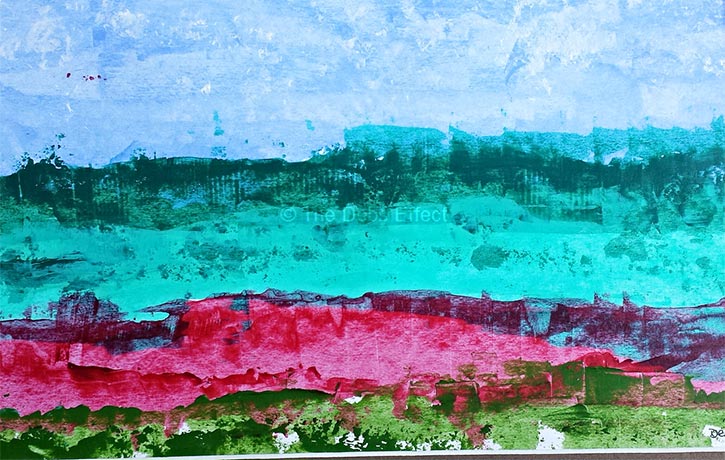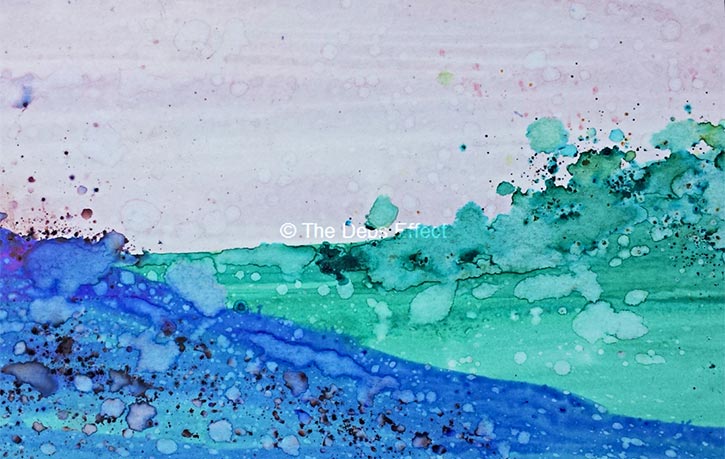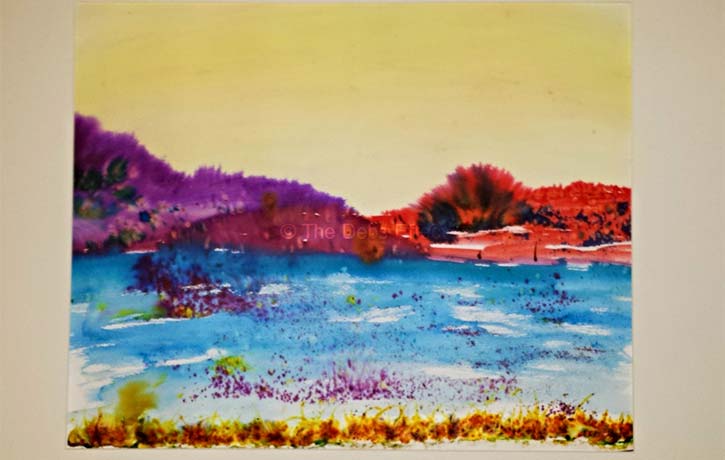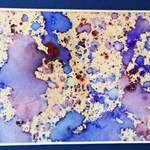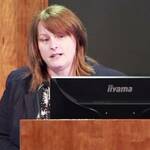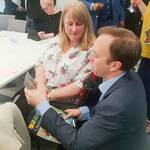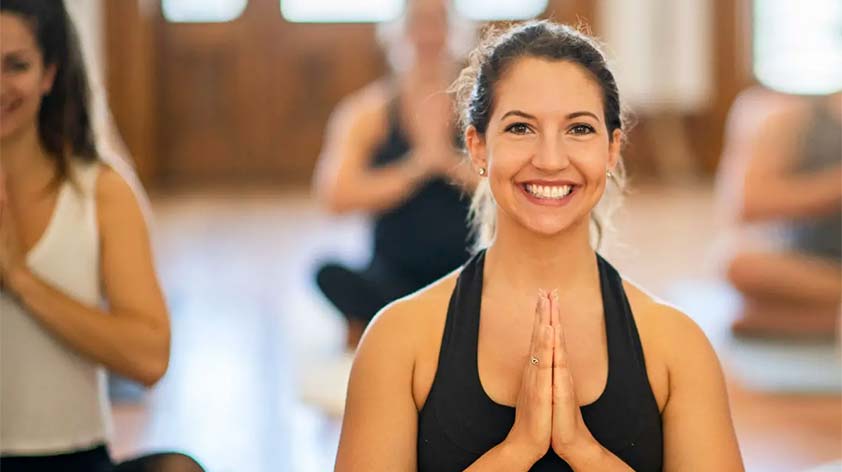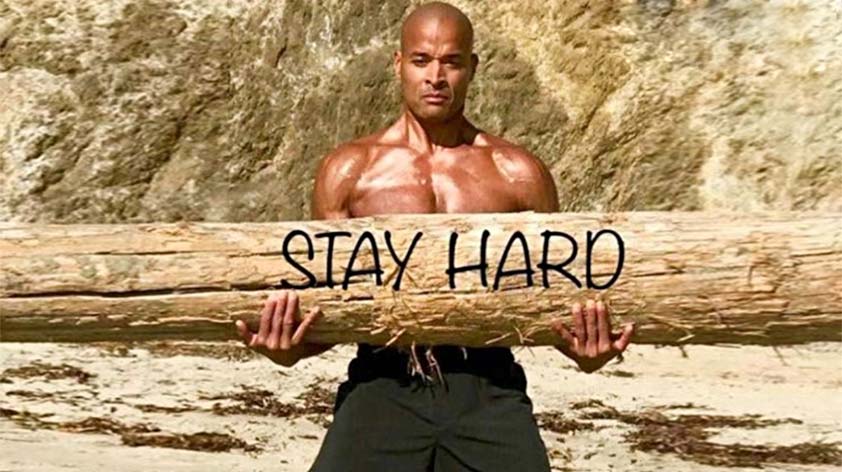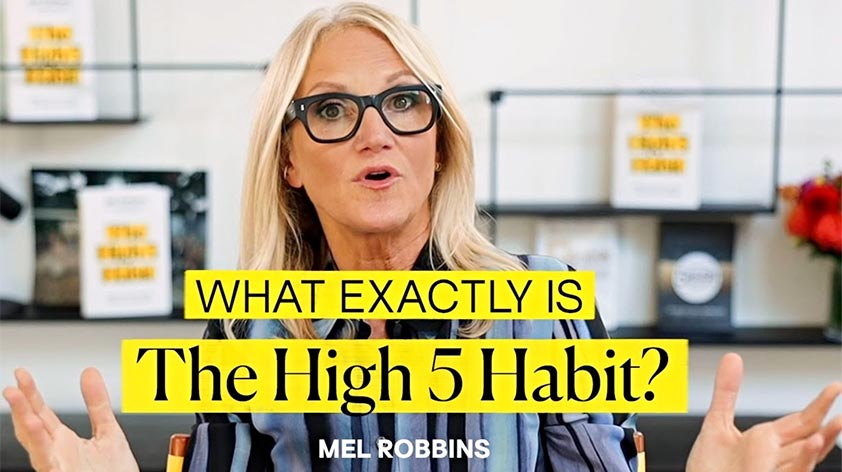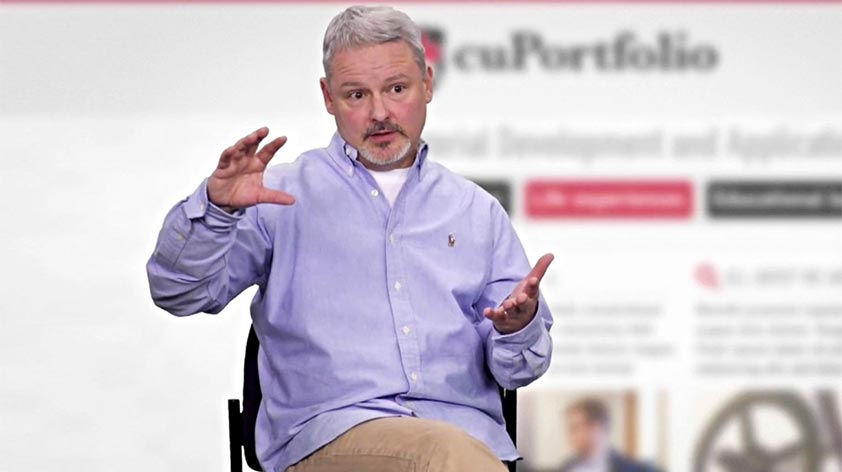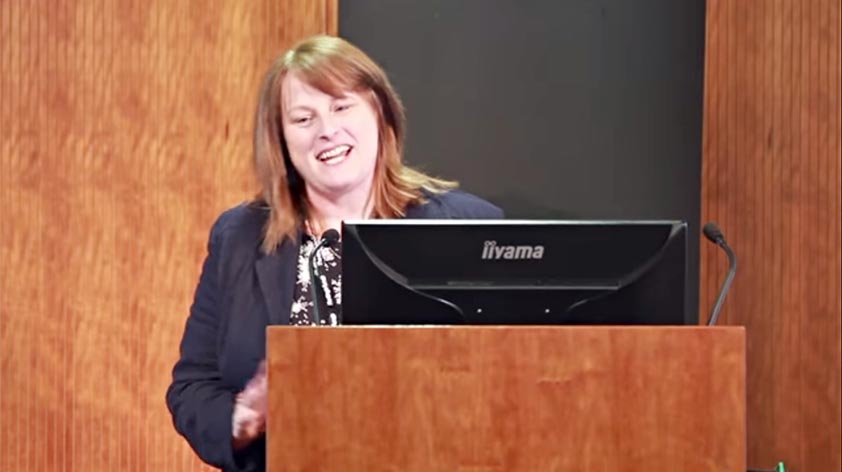
Debs Teale (nee Taylor), is an example of how finding your purpose through Social Prescribing can help transcend every limiting belief and lifestyle issue that might have cramped your potential in the past.
Suffering from chronic depression for several decades, at one point, she almost took her own life. Then, one day, after coming across a leaflet about art in her local area at her local GP surgery, she became curious enough to try something different.
Now, Debs a mom of three grown-up daughters, works at Creative Minds, a charity hosted by South West Yorkshire Partnership (NHS Foundation Trust), which is focused on the use of creative approaches and activities in healthcare. Now she has a significant voice in helping others find purpose and a creative outlet through artistic expression.
Transforming her life through art (even being recognised for her efforts by a visit to Buckingham Palace for a drink with the Queen) she gives us a stirring, candid account, and a story of hope and possibility. Read on for our interview with Debs Teale.
Hi Debs
It’s great to connect with you welcome to Keep Fit Kingdom and thanks for taking some time out to share your views with us. Would you mind briefly outlining your story for the benefit of readers?
Background & the Art of Well-being
Well, having had mental health issues from the age of 8, it was all I had known. I was used to people making decisions for me and organising my life. If you have never experienced anything else, then you never know there is anything else out there.
I reached crisis point in 2011, and as part of the treatment I was referred to psychological services. While waiting for the assessment I saw a leaflet, Creative Minds – Art for Well-being. I had never done art before, so do not know why I picked the leaflet up, but I did and rang the number. I was invited to a taster session at Artworks (which was just around the corner from where I lived, so I had no excuse not to go!)
I turned up to Artworks and as soon as I started drawing, I was hooked. The taster session turned into just over 2 years of guidance and confidence building. When I joined Artworks I was on 21 tablets a day, my children were often my carers and I was often bed-bound with my illness. When I left Artworks (to venture out on my own in my own studio), I was medication-free and feeling better than I had ever felt before.
- Debs and her 3 daughters
- Debs Cumberworth Sept 2014
The Transformation
Since then I have been medication-free for seven and a half years, out of all services for the past 4 years and finally off benefits for the first time in 14 and a half years. My girls have seen this transformation and they have pushed themselves further.
I give talks about my journey and how you can live positively with mental illness (I still have the conditions, I have just found ways to manage and control them). I have had tea with the Queen at Buckingham Palace, met Prince Charles and spoke at many top prestigious events about the benefits of social prescribing and how ‘a simple art class’ not only saved my life, but changed it beyond any recognition of what it had been before.
I was once told by a psychiatrist that I would always be ill, medicated and that I would never work again. I believed that psychiatrist, I had been medically retired from my last job, I was on benefits and never thought I would work again; now I strive hard to squash those perceptions and make sure people don’t ever believe or are told they cannot have a future. I now work in the same NHS Trust the above-mentioned psychiatrist works in.
I am an active campaigner of mental illness awareness, anti-stigma, suicide awareness and prevention; I have worked with The King’s Fund, NHS England, Public Health England, The Health Foundation and Yorkshire Ambulance Service to name but a few. I never had a voice whilst I was in services, now I make sure as many people as possible hear how anyone can achieve more than they think they could or are lead to believe they can. I was once an invisible service user with no voice, no hope, nor aspiration, ‘a simple art class’ changed all that! ‘Never underestimate the power of a paint brush’!
On Social Prescribing
That’s quite a story! Okay, so briefly, how did you first learn about social prescribing?
After taking an overdose, I was referred to psychological services where I came across a leaflet, it was purely by chance. I am grateful I did come across it, I dread to think what would have happened if I hadn’t seen it.
Indeed. So how has social prescribing helped you to feel and be well?
The art project (I hate the terminology ‘social prescribing’) that I did gave me the tools I needed for life. Traditional services helped me deal with the issues I had at the time but never equipped me to deal with the next issue. This art class allowed me to ‘heal’ myself and help me gain crucial skills I never knew I had or needed to deal with life.
An ideal niche for you. So, as far as you know, in your experience, is it getting easier to try out new approaches and short trials personalised for local communities across London and the UK?
In some areas it is easier to access and start new projects than it is for others. Some seem to really embrace it, while others are very reluctant; I do not know why this is and it is frustrating we have such a postcode lottery, but I think that’s in all of healthcare, not just SP.
It’ll take time to filter to all parts we think. For the benefit of readers, can you briefly describe how social prescribing is funded – is it via GP’s, local councils or Community Services that hire social prescribers or linkworkers?
Again, it is different in different areas. I can only speak from my perspective which is from a Creative Minds point of view: We get a small pot of money from the NHS Trust and we bid for money (we are a registered charity hosted by NHS Trust). We then ask the community where we live what creative approaches they offer. We then score it and put the results to the service users/carers of people who will be using the service.
They then decide if it is suitable enough and matches our criteria to be funded, we then ask that those community projects match the same amount of money they are asking for (If they ask for £5,000 we ask them to get match funding of at least £5,000) so in effect the NHS doubles its money and we provide a great project for half of what it would cost if we didn’t work in partnership with the community.
- Debs Misty Morning 2014
- Debs Harmony Jan 2014
- Debs Blue Haze June 2014
Social Prescribers & Wellness Advisors Need Passion
Sounds sustainable enough for now at least. So, what qualifications and skills do you think are the most important assets for a social prescriber to have?
For our service it is just a passion to see others grow. To nourish and help support them. We do not ask our participants what their illnesses are, we just know they have come to us for support and that is what is given. Everyone should have an identity and a purpose and this for me is what SP can provide and support, where other parts of healthcare can’t.
That ties neatly into our next question. So, by focusing on what a patient is passionate about, their strengths and innate potential do you think that this is the way forward to help prevent illness/disease, depression, use of medication, as well as save GP time, and NHS resources?
The Importance of Purpose
Well, one of the worst parts of my journey was that for nearly 40 years I was just a patient number. I had no purpose or identity, I was not known for me, just for my diagnosis and the bleak prognosis that I had. SP allowed me to find myself and my own identity. I became an artist, I became a person, something I had never been allowed to be prior to taking it up.
Certainly a welcome adventure! How much of an influence do you think that having a purpose and something to look forward to has on health?
This is fundamental to health in my view. If you get this right, the rest will follow.
Yes, this should come first, ideally. How do you think the social prescribing landscape will look in the next 5 years?
I would like to think, it will be readily available and be part of the service and as normal as medication and counselling, but unless it is funded and nurtured correctly that will not happen. Funding only link workers is not the way forward.
A very interesting point. How important do you think social prescribing could be for kids and teenagers?
I think the beauty of SP is that there are no age or barrier limits. It really is the universal language in well-being.
How Creative Minds Saved My Life
Agreed. You’re now working for ‘Creative Minds’ as a Project Development Worker, what is the main role of your work currently, what is the main thing you trying to achieve?
I manage the projects that are out there in the community. So the things we fund are wide and varied. It is a fantastic job seeing the participants enjoying themselves. Seeing the variety of projects and people that we work with is an amazing part of the role. I manage the collective (the group of service users that decide what gets funded and what doesn’t).
I see. What is the most challenging part about your work and what is the most rewarding?
The most challenging has to be the time aspect. I went part time a few months ago so I could concentrate on my Masters degree. Sadly when you have the passion about services and what you are trying to achieve I give it more time than I am paid for, which can be a detriment to my own health.
The best bits are seeing the projects flourish, seeing service users grow and become independent. I have been mentoring a service user who has now started to do public speaking and is now running her own project, that’s priceless and makes my job so worthwhile.
Solid result there! So, what do you do daily to keep fit in body and mind, and what’s your single best piece of advice for others?
Do what you love, make sure you have time every single day (even if it’s just 5 mins) to make time to stop what you are doing and make sure your brain can switch off. I have started setting a timer on my phone to make sure I have that time to myself, I need it and even if I just sit and meditate, that’s of benefit. I have started walking again and of course I still paint which is ultimately what keeps me well.
Learn to Reset Yourself (like a smartphone)
Useful tip! How do you handle it when days just aren’t going right, and what’s your single best piece of advice for others?
I usually take myself away from what is causing the issue. I am very strict with my well-being and my time. I have to be. I am juggling a Masters degree with work and my well-being. I have to prioritise my well-being over everything. I am fortunate I have a very understanding workplace that will allow me to have a nap through the day if I need one, or take the day off when I am stressed. I think that’s the main advice, to prioritise your health. You can usually get the other things done at different times but your health is the most important and one that needs to be looked after and is probably the most neglected.
Smartphones have a ‘reset’ switch, we can likewise be smart and do the same thing from time to time! So, looking back, what would you say are the 3 main benefits between the conventional prescription treatment you had taken before and the social prescribing route you ultimately took?
It allowed me to find the solutions to fix myself, and it allowed my brain the time it needed to heal in a very relaxed non-judgmental situation. It gave me the skills for life which I can continue to keep using moving forward, and which will help to continue to control my illness rather than it controlling me.
- At Buckingham Palace for Tea with the Queen
- At Buckingham Palace garden party
- Debs Blue Haze June 2014 1
- Debs Night Sky 2014
- Debs Stars Sept 2013
- Debs speaks at Kings Fund in London
- Matt Hancock and Creative Minds
Reflections & Words of Wisdom
A virtuous cycle. Okay, so as we’re about to wrap here Debs, what are a couple of life quotes or motivational sayings that inspire and motivate you to be and do your best?
I used to say the sky is the limit, now I realise the sky has no limit; the goals I have achieved and boundaries I have crossed are beyond anything in my wildest dreams. Keep looking forward, keep watching where you are going and keep moving the goalposts further as you reach your goals.
Now, that’s really an energising perspective! Finally, what special message would you like to share right now with Keep Fit Kingdom readers and those that know you?
Find who you are, nourish who you are and believe in yourself no matter what anyone says to or about you. No one is an expert in you but YOU. You cannot learn about you from any text book or university course. Embrace what you have been through and forge forward with what you want and can achieve. Life is hard, no one knows that more than I do, but it’s always possible to find words to challenge that difficult time and own it. Make it so that YOU and only YOU are in charge or YOUR life and YOUR well-being.
A big concept and wise words there Debs. Thank you for your kind participation in this interview. We really appreciate you sharing your unique journey and emphatic insights gained along the way. We hope it helps many others who may be reading right now.

